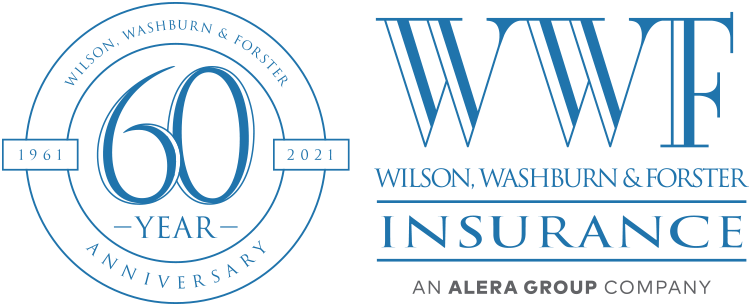If your company already has liability insurance coverage, you may raise an eyebrow when you hear that you may need another liability policy. However, “liability” is a broad term, and businesses typically need more than one type of liability policy to cover all their third-party exposures. In particular, confusion commonly arises over the difference between professional liability vs. commercial general liability insurance.
What Is Commercial General Liability Insurance?
Commercial general liability insurance is a mainstay of commercial insurance. Businesses can secure coverage as a standalone policy, but it is also typically part of business owners policy packages and commercial package policies.
The term “general liability” may lead some people to assume that this policy type covers all types of liability. In fact, commercial general liability just provides coverage for third-party claims associated with bodily injury, property damage, and personal and advertising injury.
- Bodily injury claims involve customers and other non-employees being injured as a result of your services or business operations. Examples include a customer falling in your store or a client tripping over your on-site equipment.
- Property damage claims involve the property of customers and other non-employees being damaged or destroyed as a result of your services or business operations. For example, this would apply if a client’s furniture is damaged while you perform work in her home.
- Personal and advertising claims may involve defamation, intellectual property disputes, or false arrest. Examples include a customer saying he was wrongfully detained after being accused of shoplifting, a competitor claiming you defamed his company in an advertisement, and a musician saying you used his music without permission in a commercial.
What Is Professional Liability Insurance?
Professional liability insurance protects against third-party claims alleging financial loss due to negligent professional services.
Claims may involve misrepresentation of services, breach of contract, and errors or omissions in the course of professional services. Here are a few examples:
- An accountant misses a key filing deadline, resulting in fines for a client.
- A real estate agent fails to disclose information that would lower the value of a property.
- A website designer delivers a faulty e-commerce site that results in lost sales.
Does Your Business Have Both Types of Liability Exposures?
Securing liability insurance coverage isn’t a question of figuring out whether you need general liability or professional liability insurance. Many businesses need both, so it’s important to consider the two coverages separately.
- Most businesses need commercial liability insurance. If you have a location, such as a store or office, that customers, clients, or vendors can enter, commercial liability insurance will provide protection for injuries that occur on the premises. Even if you don’t have a physical location open to non-employees, you may need commercial liability insurance to cover incidents that occur at off-site locations and for claims related to advertising.
- Businesses that provide professional services typically need professional liability insurance. This includes IT service providers, real estate agents, accountants, consultants, engineers, architects, advertising agencies and many other types of professionals. Lawyers and doctors can secure specialized professional liability insurance.
- Businesses whose services could cause financial loss for a client if there is an error, omission, or breach of contract will benefit from professional liability insurance. For example, real estate developers and contractors need commercial liability insurance to protect against bodily injury and property claims, but they can also make mistakes that result in a client’s financial loss. So, in many cases, they secure both types of liability insurance.
You May Need Additional Liability Coverages
When used in conjunction, general liability insurance and professional liability insurance protect businesses from many of the most common types of liability claims. However, they do not provide protection for ALL liability claims. Your business may need some additional policies, such as:
- Employment-related liability insurance: Employment practices liability insurance provides coverage for claims like wrongful termination, discriminatory hiring practices, harassment, and discrimination, whereas workers’ compensation provides coverage for claims involving bodily injury.
- Vehicle-related coverage: Commercial auto insurance provides coverage for vehicle-related claims and crashes. If you have vehicles for business purposes that your business does not own, consider hired and non-owned auto insurance.
- Industry-specific coverage: Depending on the nature of your business, you may also need coverage like environmental liability or product liability insurance.
What if You Are Sued?
Lawsuits can drain your company’s resources. Even if your company wins, you may incur burdensome legal costs in the process. Liability coverage provides protection, but only if you have the right type of liability insurance for the claim.
Wilson, Washburn & Forster is a boutique independent insurance agency, in business since 1961. We have expertise and connections in liability insurance and risk management. Our experience, claims handling, service, and community commitment is unrivaled.
Contact us today at 786-454-8384 for a complimentary analysis of your current insurance program by an insurance specialist in this field.








Leave a Reply